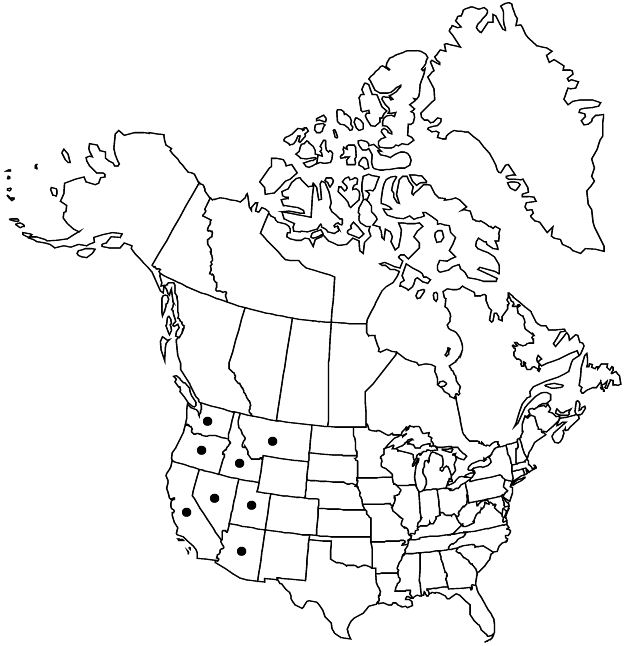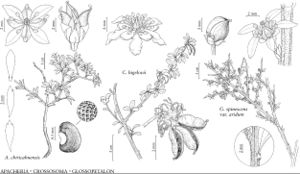Glossopetalon spinescens var. aridum
Contr. W. Bot. 8: 28. 1898.
Shrubs, (25–) 50–200 (–300) cm. Branchlets often ± ascending, turning from grayish green to dull yellowish-brown toward end of 2d or 3d years, glabrous. Leaves often still developing at flowering and early deciduous, branches often appearing nearly leafless during much of growing season; stipules present, sometimes difficult to observe, adnate portion dark reddish purple to nearly black, usually well developed, noticeably thickened, free portion relatively well developed, mostly narrowly triangular to subulate, 0.5–1.7 mm; largest blade 7–12 (–17) × (1.5–) 2–6 mm, margins ciliolate, glabrous or sparsely to moderately puberulent. Petals 4–9 mm, mostly widest proximal to apex sometimes nearly oblong, apex rounded to acute or acuminate, tips blunt or sharp. Stamens 6–10, in 2 unequal series.
Phenology: Flowering Mar–Jun.
Habitat: Rocky slopes, crevices and ledges of limestone, igneous cliffs and outcrops
Elevation: 1100–2500 m
Distribution

Ariz., Calif., Idaho, Mont., Nev., Oreg., Utah, Wash.
Discussion
N. H. Holmgren (1988, 1997) noted apparent intergrades of var. aridum with var. meionandrum in southeastern Utah and with var. microphyllum in northern Arizona, southern Nevada, and southwestern Utah.
Selected References
None.
Lower Taxa
"widest" is not a number.
